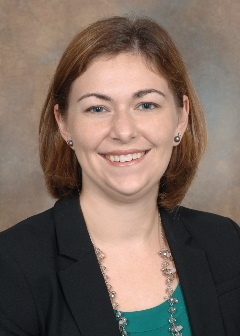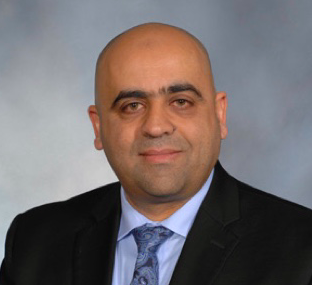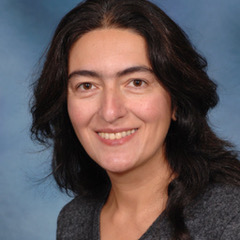Findings Staff Report | Dec. 7, 2021
Once again, University of Cincinnati researchers collected more external funding through sponsored awards than the year before, topping out Fiscal Year 2021 with more than $221 million in support, up from $207 million in FY 2020.
“Without this support, we couldn’t be doing all the very important research and scholarly activities happening in every corner of UC,” says Vice President for Research Pat Limbach. “We’re appreciative of each award and for every one of our researchers, who is working to change the world with their novel ideas and leading our next generation of scholars and researchers to do the same.”
Top federal sponsors in FY 2021, which ended this summer, included the U.S. Department of Education, National Institute of Neurological Disorders and Stroke, National Heart, Lung and Blood Institute and the National Science Foundation. Local and state supporters include the Harold C. Schott Foundation, Talbert House, the Ohio Department of Transportation, Ohio Department of Youth Services and others.
In all, there were some 250 nonprofit, government and industry sponsors supporting more than 800 UC investigators and scholars in FY 2021.
We want you to meet three researchers, who exemplify UC’s vision that Next Lives Here.
Meet Jennifer Brown
 Associate Professor Jennifer Brown, Ph.D., is about as busy as they come. Along with teaching courses in psychology and mentoring undergraduate, graduate and medical student researchers, she serves as director of Clinical Training and co-director of Graduate Studies in the Department of Psychology. She also is an associate professor in the Department of Psychiatry and Behavioral Neuroscience.
Associate Professor Jennifer Brown, Ph.D., is about as busy as they come. Along with teaching courses in psychology and mentoring undergraduate, graduate and medical student researchers, she serves as director of Clinical Training and co-director of Graduate Studies in the Department of Psychology. She also is an associate professor in the Department of Psychiatry and Behavioral Neuroscience.
Oh, and then there are her 11 active sponsored research projects, all associated with addressing health disparities in populations vulnerable to substance use, reproductive health issues and infectious diseases.
When Brown came to UC in 2015, she’d been working with populations living with HIV or at risk for HIV domestically and globally for several years. Her work had revealed gaps in patient care related to broader health issues, such as pregnancy prevention and substance use.
A Dayton-area native, Brown says taking the job at UC felt like a homecoming. UC has embraced and encouraged her work, including a partnership with Michael Lyons, M.D., an associate professor and director of the Early Intervention Program for Emergency Medicine at the UC College of Medicine. Together, the two have several active grants addressing the intersections between substance use, Hepatitis C Virus and HIV and the implementation of intervention approaches to improve outcomes in these populations.
One such project is the HEALing Communities Study, which is testing an integrated community-based approach to the opioid crisis across the nation, with a goal to decrease opioid overdose deaths in targeted areas by 40 percent in three years. The project is being directed by UC’s Dr. T. John Winhusen. Brown and Lyons were chosen to oversee Ohio’s effort to implement evidence-based practices and led the effort to bring in a $15 million grant from the National Institute on Drug Abuse, a part of the National Institutes of Health supporting the effort.
Brown says she is grateful for the support for all of her ongoing projects, including an alcohol reduction intervention study with Russian women living with HIV and Hepatitis C and sexual health interventions for adolescent youth in South Africa, funded by the National Institutes of Health and the Anna and Harold W. Huffman Foundation, respectively.
The gift from the Huffman Foundation continues work that Brown started years ago in South Africa. Brown and her team are using what’s known as Cultural Consensus Modeling to collect cultural perspectives of South African adolescents on their understanding of sexual health and sexual health issues to inform future intervention and education.
“At the core, I am really interested in how we develop culturally tailored interventions that improve health outcomes,” Brown says. “But developing them is not enough—you also have to think about how they can be implemented in the real world.”
Meet Hazem Said
 When UC Professor Hazem Said proposed that the University of Cincinnati create a new academic discipline in information technology it was 2003 and well after the advent of internet.
When UC Professor Hazem Said proposed that the University of Cincinnati create a new academic discipline in information technology it was 2003 and well after the advent of internet.
“Because of this we were able to think differently and organize differently,” says Said, who is now director of UC’s School of Information Technology. “One of the findings in IT is this concept of solutions to needs and to problems—it’s not just a technology that is in a vacuum. How do you educate students about that from the beginning?
Said helped create bachelor’s, master’s and doctoral degrees in IT and created the Information Technology Solutions Center—where a lot of his research is done.
“Students work with me, and we take on real problems with industry, government and research partners,” Said says.
One of Said nine active sponsored awards in 2021 is addressing the shortage of cybersecurity professionals in the world today. In August, the Washington Post reported roughly 465,000 open cyber jobs across the United States and called the number of unfilled positions in government “particularly dire.”
Over the next six years, UC will offer the CyberCorps Scholarship for Service program, which provides full-tuition scholarships and living stipends to individuals earning cybersecurity-related degrees from UC. Upon graduation, the scholarship recipients work in a cybersecurity position within the federal, state, local or tribal government for a period equal to the duration of the scholarship. Associate Professor Chengcheng Li is principal investigator on the project, which was awarded $4 million from the National Science Foundation.
Hazem says it is a unique approach and shows that the U.S. government wants to support our future technology superheroes, in a time where cyber security is becoming more and more important.
It was truly a university-wide effort to grow the cybersecurity programs across campus in three colleges, Said says, noting that enrollment in cyber-focused degrees at UC has increased ten-fold in the past decade.
Cybercorps candidates can pursue bachelor’s, master’s or doctoral degrees at the following UC departments: the School of Information Technology under the College of Education, Criminal Justice, and Human Services; the Department of Electrical Engineering and Computer Science under the College of Engineering and Applied Science and the Department of Political Science under the College of Arts and Sciences. For all the details, follow this link.
The program welcomed its first cohort this fall and just closed the application period for Fall 2022.
Said’s collaborations don’t stop there, he is also working with the UC Corrections Institute, a research institute out of the school of Criminal Justice, on a variety of criminal justice issues. Right now, several states’ probation departments are using a software system Said and his team at the Information Technology Solutions Center created to determine clients’ risk levels. The center has also partnered with the Ohio Criminal Sentencing Commission to tell the story of felony sentencing in Ohio.
“All of my work is related to the study of solutions and needs that connect people, information and the technologies of our time,” Said says.
Meet Lilit Yeghiazarian

Every year, thousands of people die in floods and the economic damage across the globe is in the hundreds of billions of dollars, and only projected to rise.
Many things we depend on—our access to transportation, power, clean water, and our health and safety—can be impacted by a flood. “It is very important to realize that natural and technological systems that provide these services are connected”, says Yeghiazarian. “You have to think about infrastructure interacting with environment, and with communities, and understand all the feedback loops and dependencies between them. Without this understanding we cannot predict how floods will impact them.”
“And while data about infrastructure, natural resources and communities exist, they are siloed and cannot ‘talk’ to each other, so information cannot be shared across these systems,” says Professor of Environmental Engineering Lilit Yeghiazarian, Ph.D.
But she and her national research team are working to change that.
Yeghiazarian, head of the Complex Systems and Processes Lab, and her team of experts in hydrological and hydraulic engineering, systems analysis, optimization and control, computer science, public health, geography, socioeconomics, transportation and civil and electrical engineering are developing the Urban Flooding Open Knowledge Network with $6 million from the National Science Foundation.
The Urban Flooding Open Knowledge Network will pull together information from federal agencies, industry, nonprofits, states and municipalities into one system, and provide flood forecasts across the Nation.
“We will be able to deliver flood impact information to anyone, anytime, anywhere,” says Yeghiazarian, who joined the UC research faculty in 2009, after earning a doctorate in agricultural and biological engineering from Cornell University and working as a postdoctoral fellow at the School of Public Health at University of California, Los Angeles.
The project will use data across the continental U.S., Yeghiazarian says. The network will enable communities that don’t have the funding or resources for flood modeling to obtain relevant information, addressing equity issues related to access to critical information.
“There are many disadvantaged communities, both in urban and rural areas, that do not have detailed models,” Yeghiazarian says. “When you provide that information, it enables you to reduce the equity gap in accessing water, power and transportation, which in turn provides access to other essential services like grocery stores and healthcare facilities.”
Now, any community will be able to look ahead of a big storm and find out where it is vulnerable and plan for the next big flood, Yeghiazarian says.
Congratulations to all of our researchers on their sponsored research activities. To drill into the annual awards, visit our Fact and Figures webpage.
*Note: The $221 million figure does not include student aid and CARES Act funding.